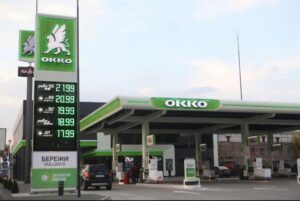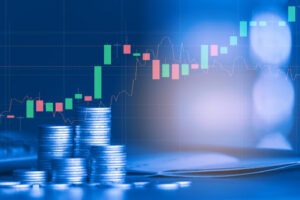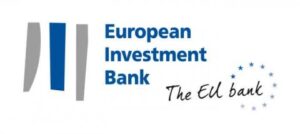
Kyiv-based market-mall Darynok will invest over UAH 30 million in renovation in 2022, the company’s press service reported.
In 2022, Darynok marks the 20th anniversary. Today it is one of the leading retail properties with 17,000 jobs and more than 50,000 daily visitors. According to the press service, in 2021, the Darynok market-mall was visited by 11.6 million people, which is 12% more than a year earlier. Due to the existing concept of retailtainment and renovation, it plans to mark traffic growth of 10% per year and 30% over the next five years.
Among the strategic directions of business development, the team singles out expanding the target audience (focusing on the business segment with workshops and master classes, events for students, job fairs, etc.), increasing coverage in digital platforms, introducing innovative IT technologies for retail, further development of corporate and social responsibility.
Darynok’s plans for 2022 are to open a food court on a street with a total area of 2,905 square meters. According to market research data, about 34% of the audience regularly eats at the food court, and 68% – periodically. The open food court in street-food style will feature up to ten different kitchens, bars, a two-story boarding area, and a separate event area.
According to the press service, for the New Year holidays Darynok together with the art-plant Platforma opened a skating rink with a total area of 1,200 square meters: visitors will be delighted with ice shows and DJ sets.
Among the achievements of 2021, the Darynok team noted the signing of an agreement with 25 new operators and the opening of a children’s entertainment center Fly Park, with a total area of 2,200 square meters. Among the tenants who strengthened tenant-mix in 2021 are the brands Arber, Klaros, Fromus, Trend, Farmacia, Billerbek, Blest Kids, Snite, Table and Chair, Med Lab, and Fly Park. Thanks to the signing of new lease agreements, Darynok managed to reduce the vacancy rate: in 2022, the market mall enters with a figure of 2% compared to 5% a year earlier.
The Darynok market-mall is a symbiosis of a shopping center and a traditional market. On a total area of 68,000 square meters, there are over 3,000 retail outlets, including a wedding gallery, a floor of children’s stores, two floors of furniture, a leather and fur outerwear department, and the Platforma Office Club coworking space from Coworking Platforma. There is also a parking for 1,600 cars.

Metinvest currently has planned its investment program at the level of $1.3-1.5 billion per year over the next three to four years, further investments will depend on how the company develops green metallurgy, Metinvest Group CEO Yuriy Ryzhenkov said in an interview with Metal Expert. According to him, the decarbonisation trend focuses on the steel industry. However, there are already well-studied low-carbon technologies, including direct reduced iron (DRI) in combination with electric arc furnaces (EAF). Metinvest’s efforts in decarbonization are related not only to climate, but also to renewal and entry into new markets (in terms of efficiency and product quality).
The updated technological strategy, which the company is continuing to develop, involves different scenarios, yet each of them includes the transition to low-carbon operations. As for CO2-related objectives, the company’s strategic goal is to reduce greenhouse gas emissions by more than 90% by 2050, using a step-by-step approach with key milestones in 2030 and 2040. The final phases of the strategy are expected to include the use of hydrogen.
“In the meantime, today, unfortunately, there is still no method for producing cheap hydrogen in our country or anywhere else in the world. That is why we have set this timeframe, in the hope that a method will be found to produce cost-effective hydrogen,” the top manager said.
The plans are to increase efficiency and automate existing processes using DRI technology and electric arc furnace production at one of the factories: either in Zaporizhia or in Mariupol. Initially, it is possible to launch a new complex using natural gas.
“At the moment, we are still discussing its location, because we are not the only shareholder in Zaporizhstal, and, so far, we don’t see the willingness of the other party to participate in the development of the plant. So, there is still a ‘fork in the road’ as to whether Zaporizhstal should be an electric steelmaking plant or a cast-iron mill,” Ryzhenkov said.
According to him, for assets in Zaporizhia and Mariupol, they have already sent out requests for technical and commercial offers to major equipment producers and they are waiting for the results. “I think we will complete the feasibility study in the first half of 2022, and probably, by the end of the year, we will need to make a decision about the site where we will build the first facility,” Ryzhenkov said.
At the same time, conventional technologies, in his opinion, will remain, since it is unrealistic to immediately switch to a completely new production cycle and new technologies. “Even in Europe, from what we see of the plans of our peers, there is a gradual transition, and conventional technologies will remain in place for quite a long time – until 2040-45. But we should not forget that steelmakers in Europe will receive government support and financial incentives to introduce new technologies, while in Ukraine, we are trying to involve the state in this issue, but we have yet to receive any support. Therefore, it will be more difficult for us to achieve this goal,” the top manager said.
The Group is working to improve the quality of its raw materials, both iron ore and coke, thereby increasing the efficiency of the blast furnaces. In addition, by improving the quality of iron ore products, the company is preparing its raw material base for the next step: DRI.
According to the CEO, in 2021, Metinvest recalculated its Scope 1 emissions according to the new Ukrainian methodology, which was recently brought in line with the European approach. In 2020, direct greenhouse gas emissions (Scope 1) within the IFRS perimeter (i.e., excluding associates and joint ventures) amounted to 23.2 million tonnes of CO2 equivalent. In addition, the Group has calculated indirect greenhouse gas emissions for the first time (Scope 2). For 2020, they amounted to 2.7 million tonnes. The intensity of direct greenhouse gas emissions in 2020 from the Mariupol site was 2.4 tonnes of CO2 per tonne of crude steel produced.
“If we talk about the short-term outlook, our main investments will be directed at the production of high-quality raw materials at Northern Mining that can, in turn, be used further in green metallurgy, and they are estimated at almost $1 billion,” the CEO said, adding that one DRI module in combination with an EAF and casting costs at least EUR 1 billion. For the construction of a plant with a capacity of 4-4.5 million tonnes of electric steel, at least EUR 2 billion will be required.
“In order to change the technology completely, the estimated costs will be about $15-20 billion over the next decade. Here we need government support. But, today, there are not decarbonization programmes, or even any progress on developing them, in Ukraine. We aim to encourage the government to move in this direction,” the top manager said.
“We are now completing the calculations for the decarbonization roadmap and, I suppose, we will make it public in spring 2022. By the end of 2022, we expect to finalize our technological strategy… By 2050, we expect that our sinter production will be completely decommissioned, and we will switch to DRI with electric steel. By 2040, we intend, to a large extent, to substitute the old capacity with electric steel, but some will still remain in place,” Ryzhenkov said.

The OKKO network in 2021 invested more than UAH 25 million in arranging solar panels at its filling stations, the company’s press service said.
According to its data, thanks to this they were installed at 50 more filling stations of the company, in total there are already 63 such complexes. In particular, in Lviv region – 15, in total in Kyiv region and the capital – 15, in Odesa and Zakarpattia regions – 5 in each.
In 2022, OKKO plans to continue equipping its filling stations with solar panels.
The total design solar capacities of OKKO are currently about 1.4 MW. The volumes of electricity that they are able to generate per year make it possible to save more than 1,000 tonnes of standard fuel from non-renewable sources.
The press service clarifies that the generated electricity is used to cover the filling stations’ own needs in energy resources. In summer months, their capacity is sufficient for a medium-sized filling complex to be able to fully provide itself with its own electricity.
“Our company will continue to actively develop this area. We consider it not only in the context of economic benefits, but also from the point of view of developing alternative sources of energy supply, preserving exhaustible resources, both within the company and in the country as a whole,” Vice President of OKKO for Development and Technical Support Oleksandr Hehedysh said.

The most in-demand specialists in 2021 were specialists in sales, IT, banking and investment, marketing, advertising and PR, as well as transport and logistics, according to a study by the expert-analytical center grc.ua. “The search for personnel during the year has more than doubled,” Ruslana Berezovska, head of the expert-analytical center grc.ua, said.
In particular, vacancies in sales, IT, banking and investment, marketing, advertising and PR, transport and logistics increased from 91% to 174%.
At the same time, specialists in insurance, top management, law, sports, fitness and beauty industries, government service and non-profit organizations were not in demand in 2021.
According to the study, the leaders in the largest number of vacancies are Kyiv city, Dnipropetrovsk, Kharkiv, Odesa, Lviv, and Kyiv regions.
The top five spheres with the highest average wages included: IT and communication (UAH 54,000), top management (UAH 43,600), consulting (UAH 26,200), construction and real estate (UAH 24,800), and civil service (UAH 23,100).
The top five spheres with the lowest average wages included: tourism and restaurants (UAH 13,200), healthcare (UAH 13,000), initial career (UAH 12,200), working staff (UAH 11,900), and administrative staff (UAH 10,700).

On Friday, December 10, the European Investment Bank (EIB) allocated EUR 50 million of loans to Ukraine, which will be used to finance coronavirus (COVID-19) vaccination program in the country, in particular, to purchase a sufficient amount of vaccines against COVID-19.
According to the EU Delegation to Ukraine press service on Friday, the loan will support the health system and increase Ukraine’s viability in the fight against COVID-19 pandemic.
“This financial transaction is part of Team Europe’s overall initiative to respond to the challenges of the COVID-19 pandemic,” the EU Delegation to Ukraine said in a statement.
To make vaccines more affordable for Ukrainians and strengthen the country’s ability to respond to the COVID-19 crisis and overcome its devastating consequences, the EIB has repurposed part of the funds of the current financial agreement.
“This is the Ukraine Municipal Infrastructure Programme (UMIP), signed between the EIB and Ukraine in 2015 in the amount of EUR 400 million. The EIB has allocated EUR 50 million under this agreement to finance the COVID-19 response. The agreement on the repurposing of the EUR 50 million loan was ratified by Ukraine in October 2021,” the office said.
According to Head of the EIB Resident Representation in Ukraine Jean-Erik de Zagon, the EIB is pleased to support the efforts of the Ukrainian government in the fight against COVID-19.
The banker said that to raise funds more quickly, the EIB managed to amend the already approved and existing loan. EUR 50 million repurposed for this aim will be used for the prompt procurement of vaccines. This is a necessary step to tackle the health and economic challenges of COVID-19, and to ensure a better future.
The procurement of vaccines against COVID-19 for funds provided by the EIB will be conducted by Crown Agents, previously approved by the Ukrainian government.

OTP Group plans to buy the Albanian subsidiary of Greek-based Alpha Bank for EUR55 million in the second quarter of 2022, the press service of the Ukrainian OTP Bank said.
According to the report, after the financial close of the deal, which is expected to take place in the second quarter of 2022, subject to regulatory approval, in terms of total assets, the market share of OTP Group in Albania will exceed 11%, and the size of the loan portfolio will increase by 1.5 times.
Alpha Bank is reported to be the eighth largest bank in Albania with a total market share of nearly 5% in terms of assets.